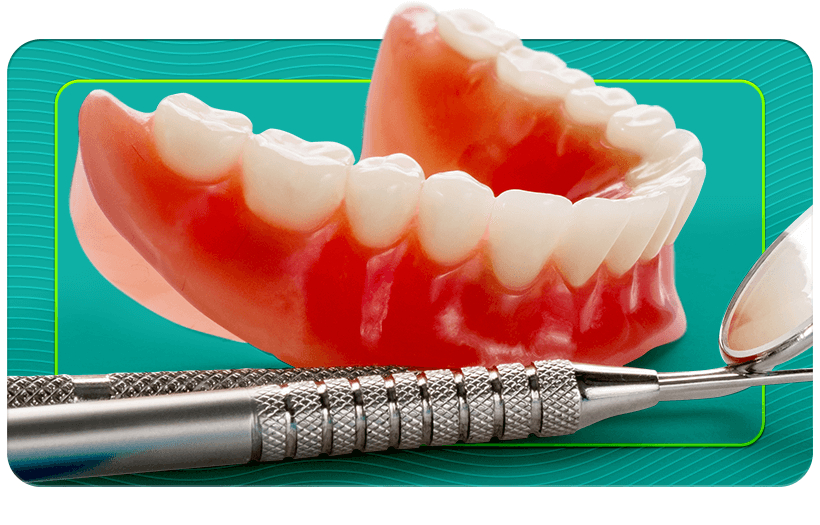
Protez dişin olması, ağız hijyeni ve bakımınıza daha az dikkat edeceğiniz anlamına gelmez. Aksine diş hekiminize düzenli olarak gitmeniz protezlerinizin ömrünü artıracak ve ağız sağlığınızı koruyacaktır. Ağızda çeşitli nedenlerle estetik bozuklukların veya kaybedilmiş olan dişlerin yerine konan, kişilerin estetik ve fonksiyonel olarak ihtiyaçlarını gideren tüm yapay oluşumlar protezdir (takma diş). Genel olarak diş kayıpları, diş eti hastalıklarının tedavi edilmemesi sonucunda oluşabilmektedir. Bunun yanında bazı kazalar sonucunda da diş kayıpları meydana gelmektedir. Bu nedenle kaybedilen dişlerin yerine, fonksiyonel ve estetik olarak sağlıklı dişlerle aynı görevi görecek protezler yapılmalıdır.
Diş protezi, hastanın kaybolan fonksiyonları tekrar kazandırılmaya çalışılırken, aynı zamanda bozulan konuşmasının da düzeltilmesi ve estetik görünümün de daha iyi olması amaçlanmaktadır. Böylelikle büyük oranda kaybedilen ağız sağlığı düzeltilirken toplum içinde eksik ya da harap olmuş dişlerle yaşamak zorunda kalan bireylerin psikolojik açıdan da desteklenmesi sağlanır. Çünkü bu şekilde yaşamlarını (bir süre de olsa) sürdürmek zorunda kalan bireyler, öncelikle gülmeyi unuturlar.
Bu da fonksiyonel bozuklukların yanı sıra, insanlarda kendine güven duygusunun zedelenmesine neden olur. Bu tip hastalara yapılan çeşitli protezlerle insanların yaşam kalitesinin yükseltilmesi amaçlanır.
Hareketli protezlerin temizlenmesi bir takım temizleme ajanları ile yapılmaktadır. Su içerisine konan efervesan tablet vasıtasıyla protezler temizlenmektedir. Eğer protez temizleme ajanı mevcut değilse diş fırçası ya da protez fırçası ile protez temizlenebilir. Bunun yanında bölümlü hareketli protezler ağızdan çıkarılıp, ağızdaki mevcut dişler temizlendikten sonra protez temizlenip yerine takılabilir. Ancak total protezlerde hastanın dişleri çıkarıp ağzını çalkalaması kafidir.
Niçin protezlerinizi günlük olarak temizlemelisiniz?Aşağıdaki problemlere sebep olabilecek, plak, yiyecek artığı, ve tartar oluşumunu engellemek için günlük temizlik önemlidir: